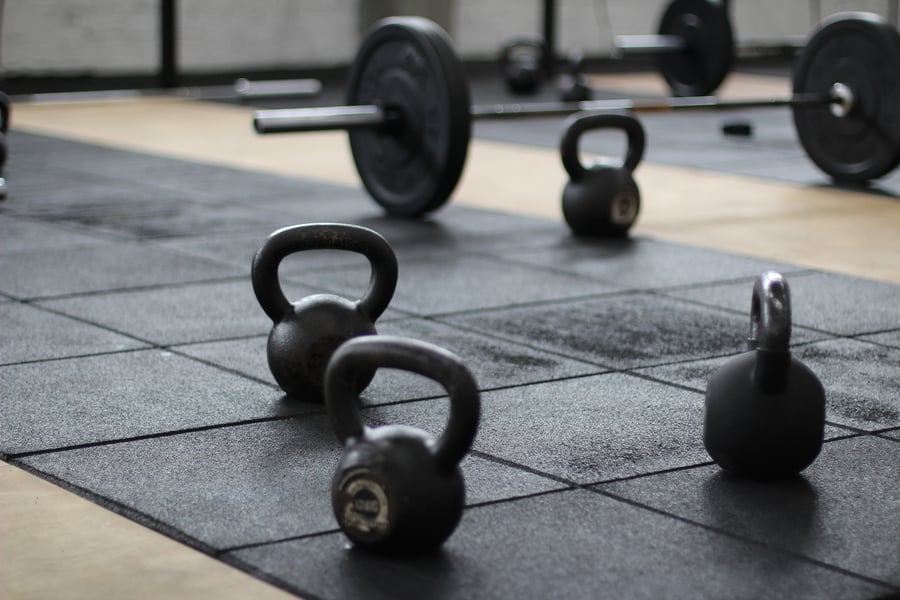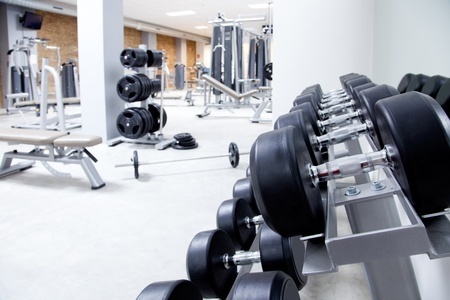There are a huge amount of misconceptions about weight training which causes women to be wary of it, and end up in a time consuming cardio routine that can seem to have no end! We are here to help break that unfair cycle and preach fact
that lifting weights is not just great, but actually really important for all, male and female.
In this article we will bust the most common myths about weight training as it should be in everyone’s fitness routine and it comes with an abundance of benefits! Muscle tone, fat loss, strength, feeling freaking awesome - who doesn’t want this in their lives?
Shake off the rumours that lifting will make you ‘bulky’ and laugh at the thought that barbells won’t ‘burn enough calories’. It’s time to hit the facts with Karen Crudington, Personal trainer at Body Development, and show you how weights can help you achieve a lean and fit body.
4 Weight Training Myths for Women:
Myth 1. Lifting weights makes you bulky
This is a common concern women express when embarking on a weight-training programme, despite having fat-loss and strength as their main priority. Some don’t fully understand the amount of training that is required for women to gain significant amounts of muscle mass that could lead to a ‘bulkier’ physique.
Women have far lower levels of growth hormones than men so muscle growth with the same level of lifting will be significantly lower.

Of course weight training will create some degree of muscle growth, but do not fear. It’s muscle that will help you achieve a leaner, defined, stronger physique that is more efficient at burning fat. It’s the gift that keeps on giving!
Your Action Plan
To get the greatest effect towards your weight training goal, the chosen weights have to be performed:
- at the right intensity
- at the right volume
- with correct rest periods between sets
- alongside a smart nutrition plan
When all of these are combined you will see great lasting results in your training. Keep on reading for more on how weight training hits one of the top fitness goals!
Myth 2. It doesn't burn as many calories as cardio so it can't be that good for me
This is not true! There are calories that you burn during a workout, and calories that you burn all day long; you have control over both of them!
Stored carbohydrates (or glycogen) are the main fuel during workouts, which causes the body to shift to using stored fat as a fuel between sessions..., providing carbohydrate consumption is regulated (this largely means don’t live on pasta, Haribo and beer!).

When people train with weights they are usually able to use up more of the sugar stored in their muscles and create a larger amount of muscle fatigue, which requires more energy during rest periods to repair. Guess where this energy will come from? That’s right, your fat stores. Providing you regulate your carbohydrate consumption, your down time will become your most effective fat burning time of the day.
If too many carbohydrates are being consumed, body fat can increase or stay the same, this is why trainers say that your fitness is 80% in the diet.
Your Action Plan
Look beyond the total number of calories burned within a session when deciding if it’s the best for body composition changes:
- Consider the long-term effects the workout can produce, for example, weight training with loads that put a muscle under tension at a high intensity for a short time (less than 10 reps) and just a few sets, create better results for strength and fat loss with a smaller amount of muscle growth.
- You will however achieve better myofibril connections meaning that the muscle will become stronger without significantly increasing size.
- Your physique can become firmer, stronger and have a greater long-term calorie turn over.
Muscles make your body work harder, meaning you’ll burn calories better after your workouts. Just because you can’t see a screen telling you how many calories you’ve burnt in a session (like on a cardio machine), building muscles will give your calorie burning a boost after you’ve left the gym!
Myth 3. Muscle turns to fat if you stop training
Muscle and fat are two completely different components. If you stop training, your muscles eventually will shrink and waste away... but there's no way they can actually turn into fat.
There's a theory that the human body works harder to maintain a pound of muscle than it does to maintain a pound of fat, meaning that if you lose muscle you will burn less calories on a day-to-day basis. If you lose muscle, but continue to eat the same calorie intake, then there's a chance you could gain fat as your body isn’t working as hard anymore. So gain muscle, eat more (of the right stuff) - sounds great, right?!
Myth 4. I have to have access to a gym with dumbbells and barbells
Nope! Let’s smash another weight training myth! Body weight training is an extremely effective form of weight/strength training. In fact, a 2012 study found that some increase in muscle size occurred as a result of using as little as 30% of the maximum weight that the subject could lift. You don’t have to power lift with huge weights at your local gym - you can use your own body weight at home or in the park to improve your muscles.

What bodyweight exercises can I do?
- Squats
- Lunges
- Pulls ups
- Push ups
These are just a few of the wide range of body weight exercises you can perform as a weight training session to increase strength and improve body composition. The world can be your gym - just be consistent and integrate these into your routines to keep up your fitness levels. Keep track of your progress and slowly increase your reps to continuously challenge yourself!
So before you glance at the weight section and dismiss it from your workout, check the facts and consider picking up some dumbbells. Muscle strength and tone has huge benefits to the body and can help you in every activity that you want to do. Remember to be safe, ask a trainer if you are unsure, but most of all, ignore the rumours and start repping!
For help finding the right training and nutrition plan for your goals:

